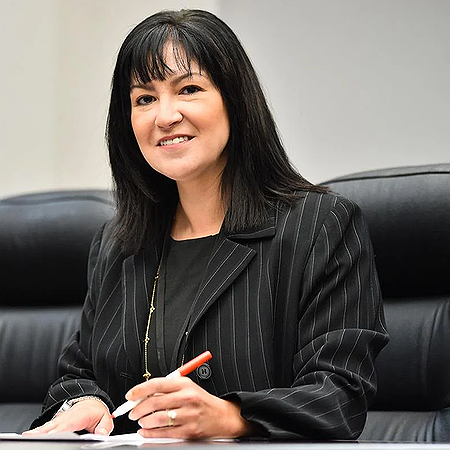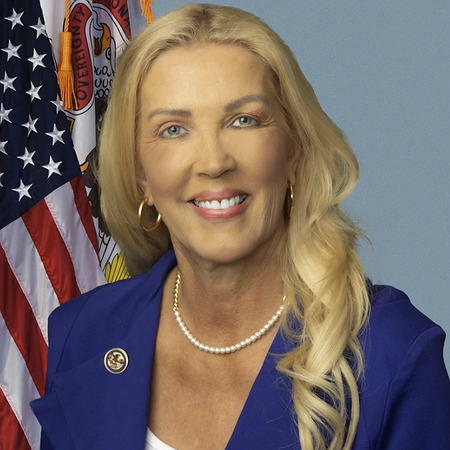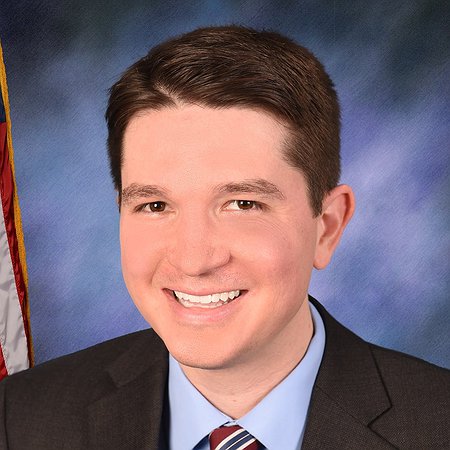Rock Island State’s Attorney Spreading Misinformation About the Pretrial Fairness Act
In an interview for KWQC news, Rock Island State’s Attorney Dora Villareal told several untruths about the Pretrial Fairness Act. Among them were misleading statements suggesting that the end of money bond is responsible for too many people being released pretrial, and that she has no authority to detain people charged with crimes like aggravated battery and possession of stolen motor vehicles.
The Briefing

State’s Attorney Villareal suggests that 75% of defendants are released pretrial solely because of the Pretrial Fairness Act. But data suggests otherwise. In the 14th Judicial Circuit, which includes Rock Island, 80% of people facing felony charges were in the community awaiting trial prior to implementation of the Pretrial Fairness Act.
Under the old money bond system, people accused of aggravated battery of a police officer or aggravated battery of a doctor could not be denied pretrial release. At most, a judge could set a money bond. Research from Loyola University suggests most people were able to pay their money bonds and secure release within seven days. Under the Pretrial Fairness act, people accused of serious offenses can be detained awaiting trial regardless of how much money they have. People accused of aggravated battery are always eligible for detention based on willful flight, and they are also eligible for detention based on safety if there is an allegation of great bodily harm.
It is likewise untrue that someone accused of possession of a stolen motor vehicle, a class 2 felony, cannot be denied pretrial release. People accused of all Class 3 felonies and above may be detained awaiting trial on the basis of willful flight. Similar to her aggravated battery examples, the current law under the Pretrial Fairness Act now provides more authority to deny release for this offense—not less.
State’s Attorney Villareal’s suggestion that the Pretrial Fairness Act has produced a state of lawlessness is simply false. While there is no evidence of increased crime since the end of money bond, it is clear that a transparent pretrial decision-making process is fairer and works better than one reliant on access to money.
Does the Pretrial Fairness Act Mean Everyone Will Be Released Before Trial?
No. The Pretrial Fairness Act centers the presumption of innocence and ensures that judges make informed and deliberate decisions about who might be incarcerated before trial and what—if any—pretrial conditions people may face when released. This was not the case before; under the old system, a person’s freedom depended on wealth. Prosecutors may file a motion to detain a person accused of any forcible felony, all sex-related charges, all domestic violence charges, and most forms of gun-related felonies if they believe they might pose a threat to another person or the community. Anyone charged with a serious crime can be jailed if they are likely to willfully flee prosecution. And anyone who is already being supervised by the court - on pretrial release, probation, or parole - who is arrested for a new charge can also be held in custody.
What is the Pretrial Fairness Act?
The Pretrial Fairness Act is the portion of the SAFE-T Act (Public Act 101-0652) that makes Illinois the first state to abolish money bond. The law includes additional provisions aimed at improving the pretrial process and increases access to the presumption of innocence. . . The U.S. Supreme Court is unequivocal that before trial, release is the “norm” and detention is the “carefully limited exception.” The Pretrial Fairness Act makes Illinois’ pretrial system more effective, efficient, and fair.







